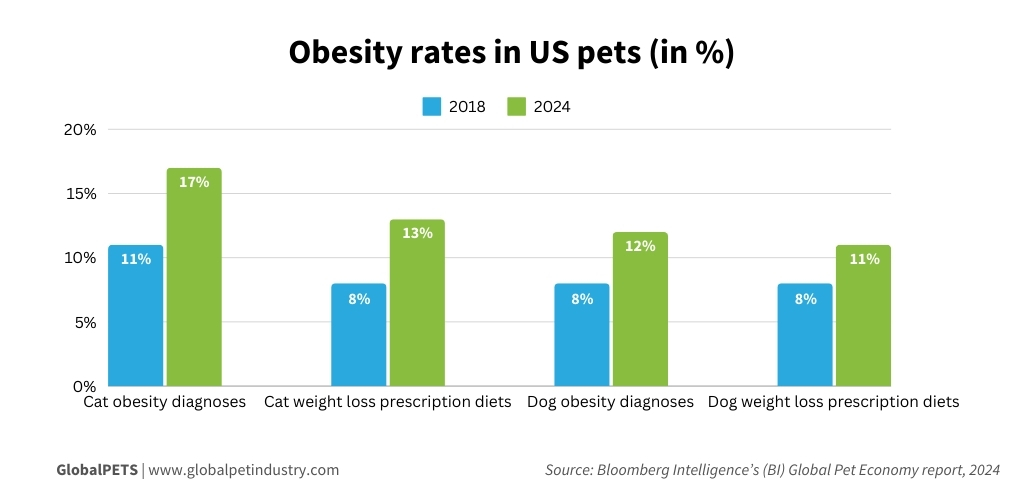The latest data from market research firm Bloomberg Intelligence's (BI) Global Pet Economy 2024 report shows that dog obesity climbed to 59% in 2022, up from 43% in 2007. Similarly, 61% of cats were classified as obese in 2022.
BI also reports that a pet being overweight contributes to heightened risks of cancer, diabetes and heart disease.
Further supporting this trend, findings from the American Pet Products Association's (APPA) 2024 Cat & Dog Report reveal an increase in vet-diagnosed cat obesity, from 11% in 2018 to 17% in 2024. Weight loss prescription diets increased from 8% to 13% over the same period.
For dogs, obesity diagnoses rose from 8% in 2018 to 12% in 2024, while weight loss prescription diets increased from 8% to 11%.

Pet parents' attitudes
A survey conducted by Ollie, an American dog food firm, found that despite around 60% of dogs in the US being overweight or obese, three-fifths of surveyed pet owners believed their pets were at an ideal weight.
Over half of the respondents (53%) acknowledged that obesity has a 'significant' impact on their pets' health, while 35% believed it had 'some' effect.
The research also revealed a significant knowledge gap, as only a small percentage of pet owners recognized key indicators of a healthy weight in dogs. Just 30% knew that easily feeling their dogs' ribs by touch was a sign, while even fewer were aware that the same applies to the spine (20%) and hip bones (17%).
Among different generations, Gen Z (born between 1997 and 2012) and millennials (born between 1981 and 1996) were most concerned about comments about their dogs' weight, with 47% and 46%, respectively, expressing worry.
These findings align with a 2023 study by the Association for Pet Obesity Prevention (APOP), which found that 84% of dog owners and 70% of cat owners assessed their pets' body condition as healthy despite many being classified as overweight by veterinarians.
Older surveys from APOP show that this awareness gap has persisted over time.
Source: GlobalPETS
You could be interested: Think Your Pet Has a Food Allergy? Here's What You Should Know First














